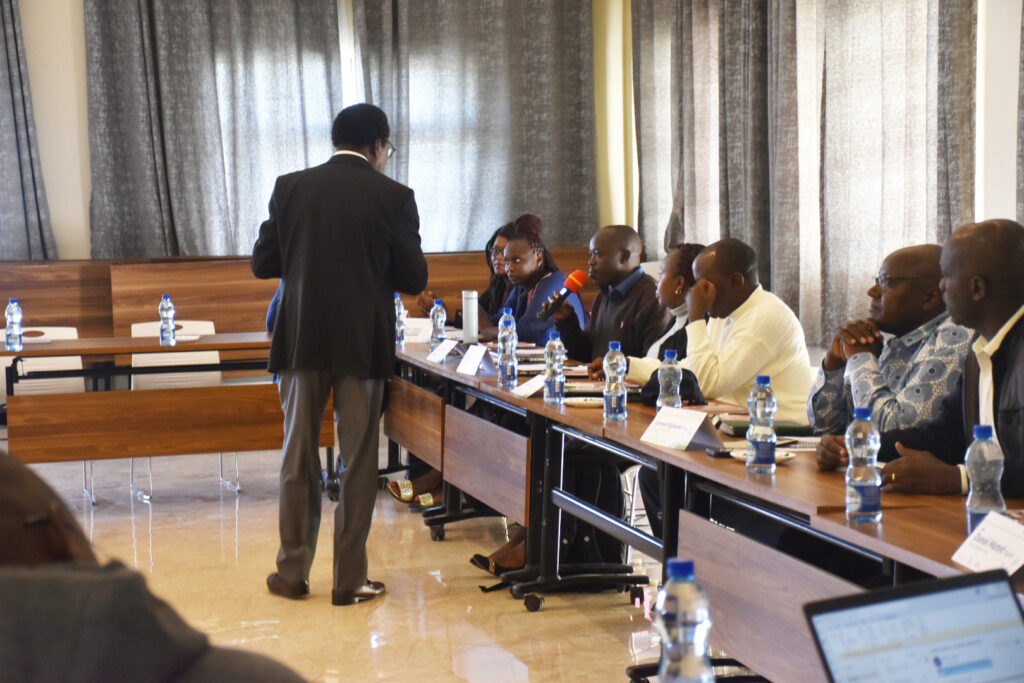
CONCEPT NOTE
INTERNATIONAL TRAINING ON INTRODUCTION TO CLIMATE FINANCE AND GREEN CLIMATE FINANCE PROCESSES
COURSE BACKGROUND
Climate finance plays a crucial role in supporting global efforts to mitigate and adapt to climate change. It enables countries, businesses, and communities to transition to low-carbon and climate-resilient economies. With growing international commitments to climate action, such as the Paris Agreement and the UN Sustainable Development Goals (SDGs), there is an increasing need for structured financial mechanisms to support sustainable development.
This course, offered under the Environmental Capacities and Sustainability (ECAS) Institute, provides a comprehensive understanding of climate finance mechanisms, investment strategies, and green finance policies. It explores how climate finance is mobilized, allocated, and implemented at global, national, and local levels. Special emphasis is placed on the Green Climate Fund (GCF) and other major international funding sources that support climate adaptation and mitigation projects. Participants will gain practical knowledge on accessing, managing, and deploying climate finance effectively in different sectors.
Through expert insights, case studies, and interactive exercises, this course equips participants with the tools to navigate climate finance landscapes, understand policy frameworks, and design impactful climate finance projects that align with global sustainability goals.
COURSE OBJECTIVES OF THE TRAINING
By the end of this course, participants will be able to:
- Understand the fundamentals of climate finance and its role in supporting climate action.
- Analyze the international climate finance architecture, including key institutions, mechanisms, and funding sources.
- Examine the Green Climate Fund (GCF) and other financial instruments for climate adaptation and mitigation projects.
- Explore climate finance policies, regulatory frameworks, and investment strategies at global, regional, and national levels.
- Learn how to access and manage climate finance for projects in various sectors, such as energy, agriculture, and infrastructure.
- Assess the role of public and private sector investments in financing green projects and low-carbon development.
- Develop strategies to enhance financial resilience and risk management in climate-vulnerable regions.
- Gain practical skills in designing and implementing climate finance projects that align with sustainability goals.
WHAT YOU WILL LEARN
Participants will gain knowledge and skills in:
- Key principles and concepts of climate finance.
- International climate finance mechanisms and their governance structures.
- Green Climate Fund (GCF), Adaptation Fund, and other climate financing instruments.
- Financial planning and budgeting for climate adaptation and mitigation projects.
- The role of carbon markets and green bonds in climate finance.
- Strategies for leveraging private sector investments in climate action.
- Policy and regulatory frameworks supporting green finance.
- Global best practices in climate finance project design and implementation.
DURATION AND PROGRAM
TARGET PARTICIPANTS
This course is ideal for government officials, financial policymakers, climate project developers, private sector investors, and development practitioners working on climate finance initiatives. It is particularly relevant for professionals from ministries of finance, environment, and energy, as well as financial institutions, NGOs, and donor agencies involved in mobilizing and managing climate funds.
Additionally, researchers, sustainability consultants, and project managers looking to understand climate finance policies, funding opportunities, and investment strategies will find this course beneficial. It equips participants with practical knowledge on accessing and implementing climate finance to drive sustainable and climate-resilient development.
TRAINING MODULES
| No | Module | Details | |
| 1. | Understanding Climate Finance |
|
|
| 2. | International Climate Finance Mechanisms |
|
|
| 3. | National and Regional Climate Finance Policies |
|
|
| 4. | Carbon Markets and Emissions Trading |
|
|
|
5.
|
Financial Instruments for Climate Adaptation and Mitigation |
|
|
| 6. | Climate Risk Assessment and Financial Decision-Making |
|
|
| 7. | Accessing Climate Finance |
|
|
| 8. | Future of Climate Finance and Green Investments |
|
|
TRAINING STYLE
This course uses a practical and interactive learning approach to equip participants with real-world insights into climate finance. Expert-led lectures and panel discussions will provide foundational knowledge, while case studies and real-world examples will illustrate successful climate finance projects. Group exercises and simulations will help participants develop project proposals, assess financial risks, and explore investment strategies. Interactive workshops and policy dialogues will foster collaboration and knowledge-sharing among participants, ensuring they gain both theoretical understanding and hands-on experience in climate finance planning and implementation
GENERAL NOTES
- Training manuals and additional reference materials are provided to the participants.
- Upon successful completion of this course, participants will be issued with a certificate.
- We can also do this as a tailor-made course to meet organization-wide needs. Contact us to find out more: info@ecasiafrica.org.
- Payment should be sent to our bank account before the start of training and proof of payment sent to: info@ecasiafrica.org.
ABOUT ECAS INSTITUTE
The ECAS Institute designs and delivers independent and targeted training, research, and consulting services. Our work focusses on climate change and resilience building, carbon markets, renewable energy, nature-based solution, biodiversity conservation, agriculture and food systems, We are located in Nairobi Kenya and work across the African region. We have implemented training and research assignments in Kenya, Tanzania, Uganda, South Sudan, Somalia, Malawi, Rwanda, Congo, and South Africa. Globally, we have supported our partners from the UK, Denmark, Italy, Sweden, Germany, and USA.
